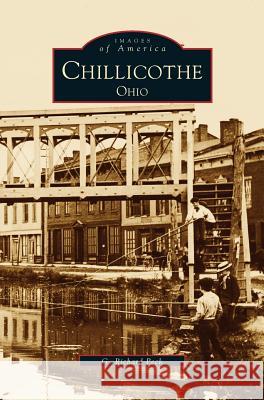Chillicothe, Ohio » książka
Chillicothe, Ohio
ISBN-13: 9781531601553 / Angielski / Twarda / 1999 / 130 str.
Chillicothe, Ohio, founded in 1796, became the capital of the Northwest Territory in 1800 and the capital of Ohio in 1803. Cheap land in the Virginia Military District drew settlers to the area in the 1790s. These early settlers came to the Chillicothe area with the idea of building a new state, and the State of Ohio constitution was signed in Chillicothe
in 1803. Chillicothe was the capital of Ohio for two separate periods of time: 1803-1810 and 1812-1816.
This visual history of Chillicothe contains over 220
historic images, including maps dating back to 1783 that illustrate land claims made by Virginia and other states. The images presented herein take the reader through the days of the Ohio and Erie Canal, the high time of the railroad, and the period when Camp Sherman, a World War I training camp, was located just north of town. Many of the buildings pictured survive and are preserved as part of
Chillicothe's downtown business district. With the exception of the presence of automobiles, many of the street scenes look almost the same today as they did in the mid-1800s. Chillicothe survives today as a city with a population of over 22,000, in the midst of many historical attractions and a major, annual outdoor drama called Tecumseh.
Chillicothe, Ohio, founded in 1796, became the capital of the Northwest Territory in 1800 and the capital of Ohio in 1803. Cheap land in the Virginia Military District drew settlers to the area in the 1790s. These early settlers came to the Chillicothe area with the idea of building a new state, and the State of Ohio constitution was signed in Chillicothe
in 1803. Chillicothe was the capital of Ohio for two separate periods of time: 1803-1810 and 1812-1816.
This visual history of Chillicothe contains over 220
historic images, including maps dating back to 1783 that illustrate land claims made by Virginia and other states. The images presented herein take the reader through the days of the Ohio and Erie Canal, the high time of the railroad, and the period when Camp Sherman, a World War I training camp, was located just north of town. Many of the buildings pictured survive and are preserved as part of
Chillicothes downtown business district. With the exception of the presence of automobiles, many of the street scenes look almost the same today as they did in the mid-1800s. Chillicothe survives today as a city with a population of over 22,000, in the midst of many historical attractions and a major, annual outdoor drama called Tecumseh.











